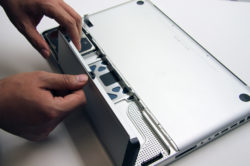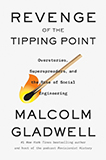Ask a Korean! has posted a great (translated) article on a Korean reporter’s comparison between Apple and Samsung in respect to their latest smartphones. After omitting some content that I believed not to be as relevant for purposes of this post, here is a good-sized excerpt:
iPhone users, instead of playing number games, create a word-of-mouth ad that says “You just know the difference once you use it.” This is because Apple is a company that cares about how we use a machine….
Compared to this, Galaxy is not a great product. Although it receives praises of “best functionalities among all the Android phones thus far,” it feels more like a well-rounded thing without a big flaw rather than the best. This is why it is difficult to imagine anyone who would stay up all night to buy Galaxy S, children who jump up and down with joy after receiving Galaxy S, or a friend who is on the verge of tears after receiving a Galaxy S as a gift.
But even the greatest product is meaningless if it is not there by your hands when you want to buy it. Therein lies the greatness of Samsung Electronics….When the demand outstrips the supply, Samsung can conjure the magic of instantly increasing supply by expanding the production line for Product A into the production line that used to make Product B. Apple cannot do this. Instead, Apple takes reservation on the quantity of its products, gets its product based on that deadline, then increases the supply if the order increases. Although Apple is always late to respond to the market, it covers its weakness by its product’s outstanding attractiveness. Apple even goes so far as to use the reactions of the waiting customers in its marketing.
In contrast, if the demand for its products is lukewarm, Samsung Electronics — which runs its own factories — simply changes the production line to produce something more popular. On average, Samsung only takes two months to re-educate its workers for the new line. Samsung’s employees, who are divided into a number of ranks, always endeavor to become a higher-ranked engineers. Because the working environment is dynamic (in other words, not boring,) there is no employee who kills himself; in fact, the job satisfaction for Samsung’s factory workers is on the high side. Furthermore, based on the market’s reaction, Samsung adjusts the amount of production within 48 hours. It is not an exaggeration to say that Samsung has the world’s quickest reaction time among global corporations. Apple cannot order Foxconn to adjust its production within 48 hours. If Apple did that, it would not be able to have the contract that allows for Apple to put out its products at this price. But Samsung makes a lot of cell phones other than smartphones; because Samsung orders so many parts, it can acquire components at prices as low as Apple’s. Samsung also has a production system that is just as efficient as Foxconn. On top of this, Samsung has the advantage of an incredibly fast market-reaction-time that Apple-Foxconn combo would have difficulty achieving. The strength that makes Samsung great is this unique advantage that allows the company to make approximately similar products for cheaper price and put them out in the market when the customers want them. I think the company learned this strategy when it was battling Nokia.
Therefore, my belief is that while Samsung did not build a great product, it built a great factory. Even though it does not make an Anycall phone that drives customers mad in their desire to have, Anycall phones maintained the basic level of quality, were available at appropriate price, and existed at the time and place when the market wanted that product. Instead of trying to be the most innovative company, it seems as if Samsung is trying to be a company that will continue to be in second place even if the first place may change.
Basically, the gist of the article is that Apple creates great products while Samsung has built a great factory.
I have not owned a Samsung phone since cell phone manufactures started using color displays. However, from reading numerous reviews and this reporter’s assessment, I think it’s safe to say that while they are good, they are nowhere as great as the iPhone.
Nonetheless, according to this article, and from what I know of Korea (employment at Samsung — even at one of their factories — is a much-coveted position in South Korea), Samsung has built a splendid factory for itself both in terms of manufacturing process and worker satisfaction.
This far outstrips Foxconn, the Chinese factory that is contracted by Apple to produce its much-beloved products.
While I have waited in line for products — including Apple — in the past, my patience has waned over the years and I can no longer see myself doing this. This may be the impatient, greedy American in me talking, but product availability that meets the market demand is extremely important to me.
How important is product availability to you?
Would you wait in line for a product you craved?
In addition, I always wondered why there hasn’t been more (American) public outcry over the rash of Foxconn suicides. Some say that poor working conditions in countries like China is a way of life. Others attribute the tragic deaths to plain old bad luck — at least from the view of Foxconn. Apple has vowed to keep a closer watch on its Chinese manufacturing leg, and while it’s great that another suicide has not been attempted in almost a month, I was surprised to see that there was no massive campaign (that I know of) to boycott Apple products until the issues had been addressed and solved.
And isn’t it obvious why not? The superiority of Apple’s products outweigh any bad press that may come from the treatment of its workers — contracted or not.
How important are workers’ conditions and
manufacturing processes to you when selecting products?
I have to admit that I, as a typical (see: greedy) American consumer, do not pay much heed to how a product gets there; I much prefer to see whether the product meets my needs, and if so, to purchase it as soon as possible.
But with the Foxconn suicides in mind, one can’t help but wonder if anyone had the deaths in mind while waiting in line for an iPhone 4. Or better yet, how many were even aware of the suicides?






 I like books, gadgets, spicy food, and art. I dislike shopping, hot weather, and the laws of entropy. Although I am a self-proclaimed computer nerd, I still have a love for handbags and makeup... and I am always teetering on high heels. To learn more about me, visit the
I like books, gadgets, spicy food, and art. I dislike shopping, hot weather, and the laws of entropy. Although I am a self-proclaimed computer nerd, I still have a love for handbags and makeup... and I am always teetering on high heels. To learn more about me, visit the 


is this why samsung makes apples processor for the iphone 4 ??
also apple product cannot multitask